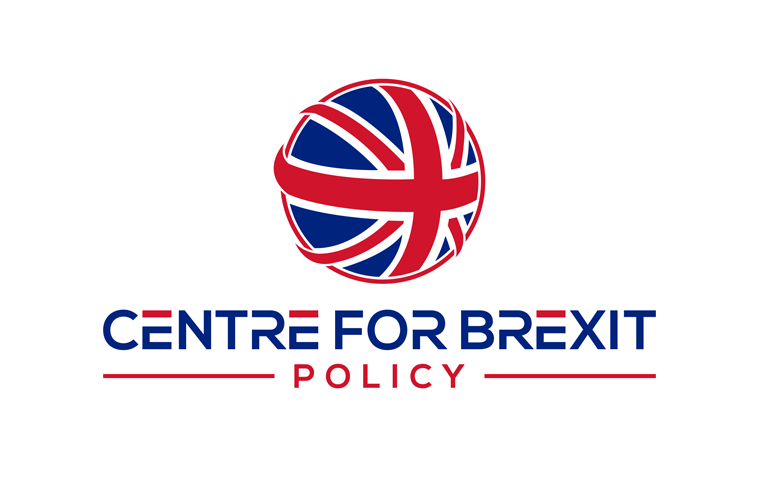Ukraine would have fallen to Russia had Britain not used its new-found freedom outside the European Union to lead the West to confront President Putin’s brutal aggression, according to a major new report published today.
The report is scathing about the “feeble” response of Brussels at the outset of the war and urges the West to double down on its mission to repulse the Russian invasion and resist calls for premature ceasefires and negotiations.
It draws heavily on lessons from past conflicts to insist that appeasement of bullying states and their leaders never works.
It argues that the history of 2022 shows that nimble voluntary associations of independent sovereign states, such as NATO, are far better equipped to deal with murderous tyrants like Putin than slow-moving supranational bodies such as the EU – or, going back in time, the federalist League of Nations between the world wars. The report revisits those lessons.
The report, published by the think-tank, the Centre for Brexit Policy, identifies the UK’s leadership of the West’s increasingly robust response to Putin as the one of the biggest gains of the country’s decision in the 2016 referendum to leave the EU after more than 40 years of membership.
It applauds the way the UK has resumed its historic place on the world stage and documents that in the immediate run-up to the invasion and for the next nine months it spent more on military assistance to Kyiv (£3.7 billion) than all the EU institutions combined (£2.8 billion).
It singles out former prime minister Boris Johnson and defence secretary Ben Wallace for special praise for the way they over-rode the doubts of Whitehall “securocrats” who urged a more cautious approach; and it warns of the dangers of a “banker’s dash-board audit” – just as the Joint Chiefs of Staff were forced to push back against the Treasury in 1932-35.
The report, Putin’s War at Year’s End, has been written for the CBP by defence expert Professor Gwythian Prins, Emeritus Research Professor of the London School of Economics and a former adviser to the MoD, NATO and the UN.
“Ukraine was saved from defeat by Day Six {of the war} by two men and one country, who were equally but differently indispensable,” he writes.
“It was good fortune, perhaps, that the British minister of defence was himself a former combat-decorated Scots Guards captain with a hard-charging reputation that he brought with him into politics.
“Ben Wallace did not require advisers to tell him what the Ukrainians needed if they were to have a fighting chance….
“Double fortune for Ukraine was that Wallace’s prime minister was the most charismatic and consequential, if mercurial, politician of his generation and also a man with a deep and exotic hinterland outside politics.
“Wallace explained to Boris Johnson that what the Ukrainians required in the first instance were immediate supplies of man-pack ‘fire and forget’ anti-tank weapons…
“ Johnson gave his minister full backing to ride over the reservations of the British securocrats who, left to their own devices, would not have made the transfers at scale, at pace and in the face of German opposition in particular, with President Macron’s grand-standing solo diplomacy at its back.”
The report shows how the UK’s decisive military assistance in the first week of the Russian blitzkrieg, intended to seize the capital Kyiv and to kill Ukraine’s President Volodymyr Zelenskeyy, was only possible because of Brexit and because it was no longer hamstrung by the EU’s Common Foreign and Security Policy.
It states that: “The United Kingdom exercised decisive sovereign will in this most indispensable initial emergency sustainment. It simply could not have done this had it still been under the bureaucratic suzerainty of the European Union and its actual leadership in the Commission.
“During those critical days when Germany was actively obstructive and France was free-lancing, the EU institutions were passive verging on catatonic.”
Among the historical parallels cited by Professor Prins is the abandonment of UK military support for the White Russians in their civil war with the Bolsheviks in 1919-20, the immediate aftermath of World War One.
Professor Prins writes: “The implications of 1919-20 for the cusp of 2022-23 are now surely clear? Double down, don’t quit. The risks of appeasement far outweigh the risks of consolidating the Ukrainian military successes that were generally unexpected, seen from the viewpoint of a year ago.
“It follows that the emergency first response led by Johnson and Wallace needs to be followed through with conviction, clarity and continuity.
“Programmes of sustained rearmament, now to include main battle tanks, and resupply, compose the safer diplomacy, brigaded with the continuing cycles of British Army training of Ukrainian forces that began after the annexation of Crimea, which trained the 14,000 regular soldiers who held the lines in the Donbas.
“All this means full-hearted acceptance – not least in the British civil service – that Great Britain was the indispensable nation and continues to be so.”
Commenting, David Jones MP (former Cabinet minister and deputy chairman of the ERG) said:
“This important paper sets the first year of the Russia-Ukraine conflict in historical context and identifies fascinating echoes of 20th century political and military crises.
“In particular, it demonstrates how a reinvigorated, independent United Kingdom under Boris Johnson showed the flair and determination to lead the Western response to Putin’s aggression, losing no time in equipping Zelenskyy with NLAWs, while Scholz reluctantly sent 5,000 helmets and Macron urged appeasement.
“Any doubts as to the capacity of the United Kingdom to exert a leading role in international affairs will be dispelled by reading Prof Prins’s masterly analysis. It shows that, outside the constraints of the European Union, and unconfined by the Common Security and Defence Policy, the UK galvanised the international community against the onslaught of a predatory adventurer. As such, it delivers a message of huge optimism.”
ENDS
Click here to read the report.

